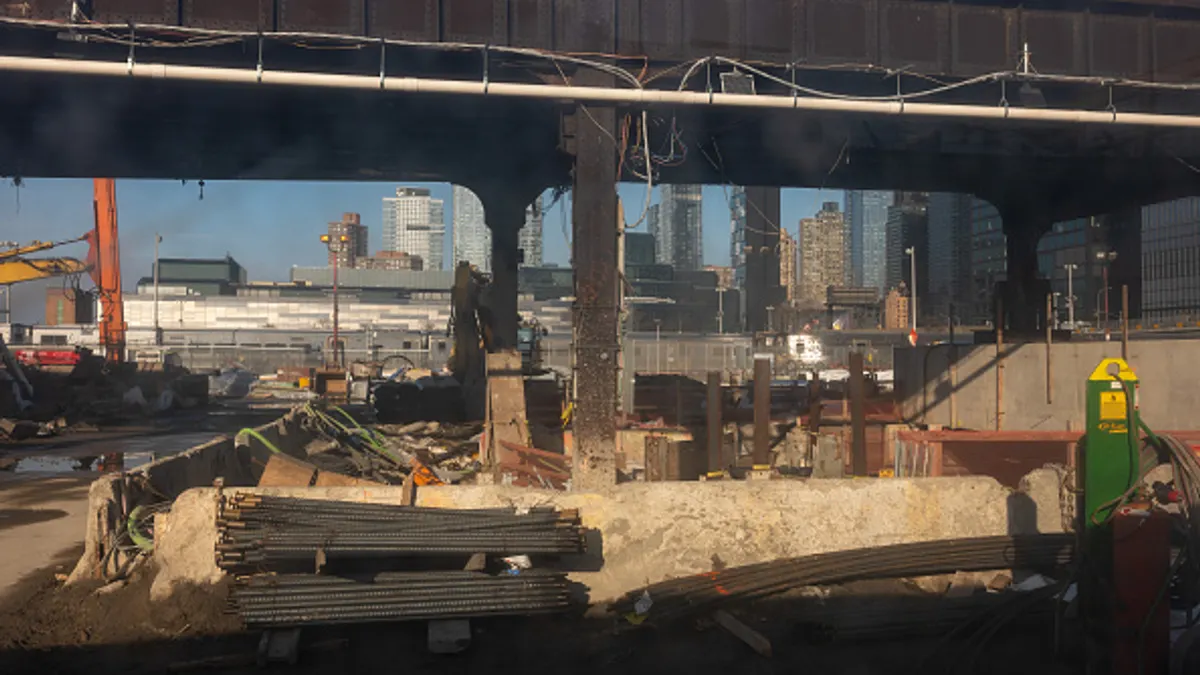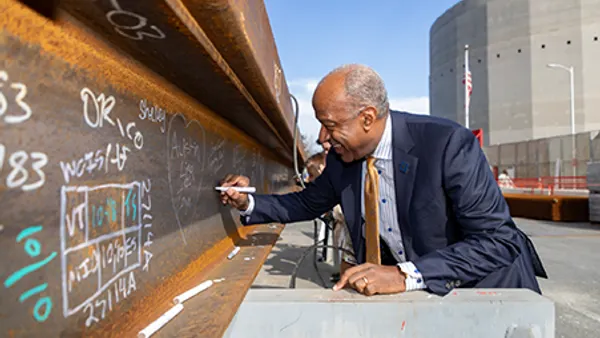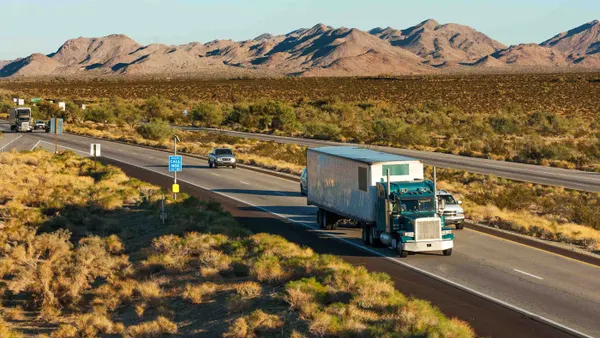Dive Brief:
- Nebraska Gov. Pete Ricketts has signed the state’s Transportation Innovation Act, a $450 million highway construction bill that is expected to start bankrolling infrastructure projects as early as 2019, the Omaha World-Herald reported.
- The state is paying for the bill, which quickly passed the Nebraska Legislature unanimously, with $50 million from cash reserves and $400 million from future gas-tax revenue.
- The bill will aid in the completion of currently unfunded and idle state highway projects, kick in $40 million for a bridge repair matching-grant plan, and contribute $20 million to the development of transportation strategies intended to lure new business to the state.
Dive Insight:
In an ironic twist, the World-Herald reported, a 6-cent increase in 2015 to the state gas tax that the governor had previously vetoed is now a critical part of the highway bill’s funding scheme. In addition, the governor originally asked for a total of $300 million for the plan, with $150 coming from cash reserves, but the Legislature voted to give him $450 million, with a $50 million cash component instead.
The Nebraska Roads Department will now begin to identify and prioritize projects and work out the details of the special bridge and transportation aspects of the bill. In addition to financing the work, the bill also allows the state to use "contracting and bidding methods' that it hopes will save time and money.
It’s not uncommon for states to use gas tax revenues as part of their transportatin project funding strategies. However, California is an example of a gas tax plan gone awry, with the method actually creating holes in the state budget. The state developed what it calls a gas-tax swap, and when gas prices fall — as they have been and continue to do — the gas-tax rate falls as well. According to local media, the gas tax has plunged 9 cents in the past two years, with each cent lost representing a reduction in the highway budget of $149.2 million. The loss of revenue is at approximately $1 billion and has resulted in the suspension and cancelation of many state infrastructure projects.













